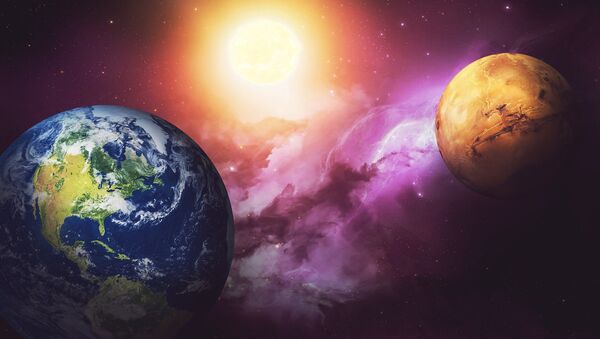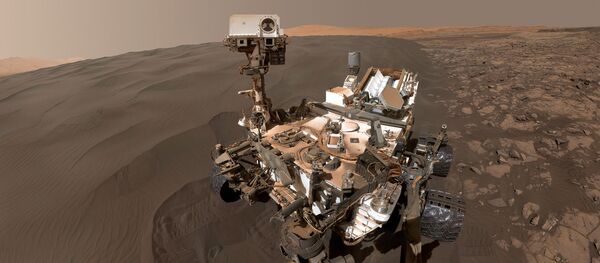Astronauts can't simply bring food with them on their trip to Mars because it takes up weight, and more weight means higher costs and more fuel. Growing food in the spacecraft itself is not the best idea either, for a proper hydroponic setup would take up a lot of room and use a lot of energy.
A group of scientists from Pennsylvania State University has come up with a plan to solve these problems, and — are you ready?— it involves poop and bacteria feeding on it. As uninviting as it sounds, the solution could be an efficient way to both recycle waste during long space missions and produce something edible for hungry astronauts. And "it's faster than growing tomatoes or potatoes," according to Christopher House, a professor of geosciences at Penn State.
"We envisioned and tested the concept of simultaneously treating astronauts' waste with microbes while producing a biomass that is edible either directly or indirectly depending on safety concerns," House said.
Today, astronauts aboard the International Space Station recycle a portion of water from urine, but the process is energy intensive, House said. Solid waste management has been a bigger hurdle. This currently is ejected into the Earth's atmosphere where it burns up.



